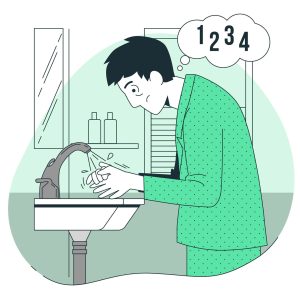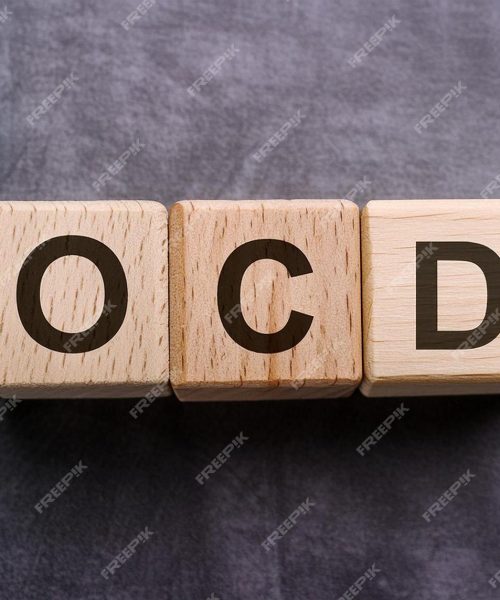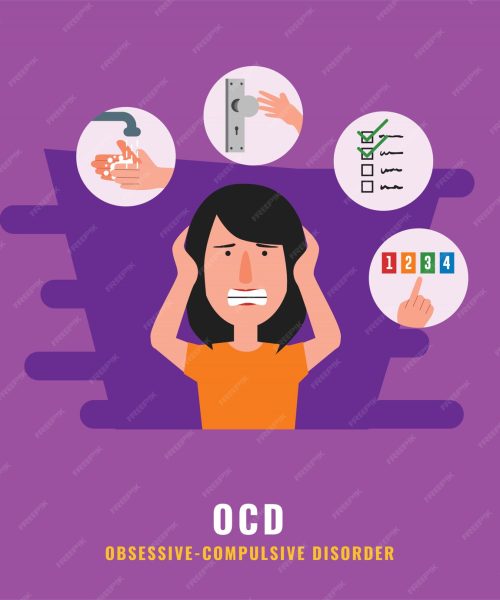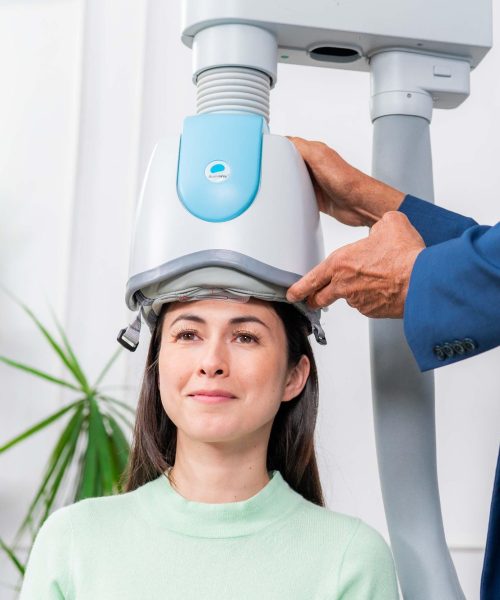An Overview
Obsessive Compulsive Disorder is a neuropsychiatric condition characterized by:
- Rituals like excessive cleaning or handwashing due to fear of contamination.
- Repeatedly checking things like locks, appliances, or switches to prevent potential danger.
- Counting, tapping, or repeating certain words to reduce anxiety
- Specific worries related to harm to self or others.


What causes OCD?
Obsessive Compulsive Disorder is a neuropsychiatric condition characterized by:
- Is OCD genetic?Psychiatrists do typically think of OCD as having a genetic predisposition. For example, there are a few genes related to tryptophan and serotonin that have been genetically linked to OCD and while we typically think of OCD
as a condition that is related to dysfunction of serotonin, genes related to dopamine and glutamate have also been implicated in the disorder.
Is OCD something people are born with?
Because OCD it is one of the mental health conditions typically with a higher genetic predisposition, we often times do see symptoms in children and adolescents. In fact, studies conducted in twins have shown a higher likelihood that is one twin has OCD, then the other twin sibling will also have it.
Is OCD environmental (ie, caused by stress, trauma, etc)? - Is OCD related to chemical imbalances or hormones/puberty?OCD is thought to be caused by a disruption in serotonin and glutamate related neurotransmitters, particularly in the cortico-striato-thalamo-
cortical (CSTC) circuit Can OCD be a learned behavior?I think this would be less likely generally speaking, however there is almost always an interplay between genes and environment in mental health conditions. Certainly conditions associated with traumatic experiences can lead to somesymptoms that may look like OCD for certain individuals.
Types of OCD
What are examples of harm OCD obsessions and compulsions?
It is common to see patients fear that they will hurt a family member. For example a new parent may have fears of hurting their young child despite them not having any intention of doing so. The affected individual may then
seek reassurance that this harm will not occur and perform a ritual to help alleviate this fear.
What causes harm OCD? Is it different from other types of OCD?
It mainly is a subtype of obsession that can be seen in OCD. Patients can have obsessions about many different things- contamination,


Transcranial Magnetic Stimulation
Obsessive Compulsive Disorder is a neuropsychiatric condition characterized by:
- Rituals like excessive cleaning or handwashing due to fear of contamination.
- Repeatedly checking things like locks, appliances, or switches to prevent potential danger.
- Counting, tapping, or repeating certain words to reduce anxiety
- Specific worries related to harm to self or others.